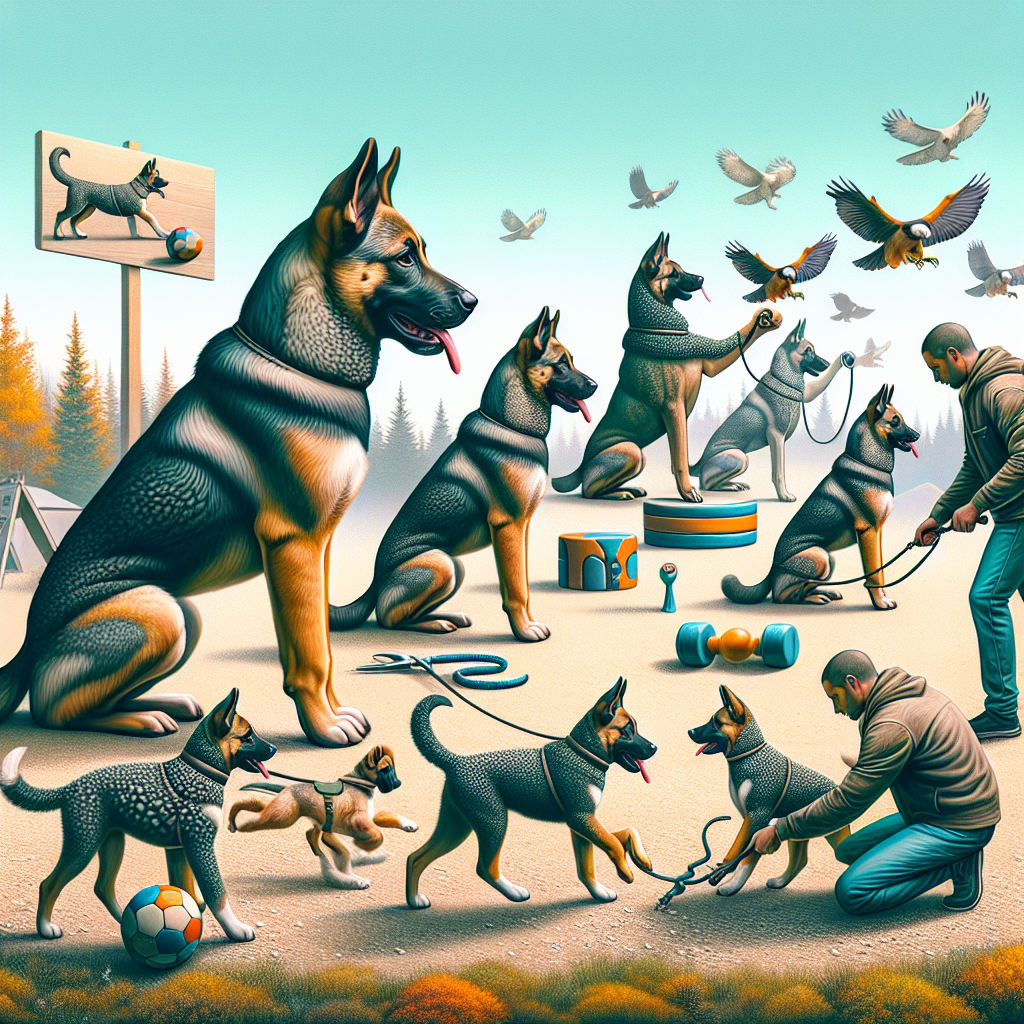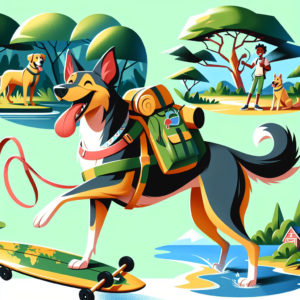Contents
- 1 Introduction
- 1.1 1. Understanding the Breed
- 1.2 2. Puppy Training
- 1.3 3. Positive Reinforcement Training
- 1.4 4. Breed-Specific Training Challenges
- 1.5 5. Advanced Training and Tricks
- 1.6 6. Behavioral Issues and Corrections
- 1.7 7. Exercise and Mental Stimulation
- 1.8 8. Training Resources and Tools
- 1.9 9. Consistency and Patience
- 1.10 10. Conclusion
- 1.11 Alexandra Bennett
Introduction
The Africanis is a breed deeply rooted in African history, known for its intelligence, loyalty, and adaptability. These dogs have thrived for centuries as hunting and herding companions, and their independent nature reflects their self-sufficient origins. Training an Africanis is not just about obedience; it’s about nurturing their natural instincts and strengthening the bond between dog and owner.
In this guide, we’ll explore every aspect of training Africanis dogs, from understanding their unique traits to advanced training techniques. Whether you’re a first-time dog owner or an experienced trainer, this article provides the insights and tools you need to train your Africanis effectively.
1. Understanding the Breed
The Africanis has a rich history as a working dog, often tasked with herding livestock or hunting alongside human companions. Their temperament is a blend of intelligence, independence, and loyalty. While they are deeply attached to their families, they also retain a strong sense of autonomy.
These dogs are naturally alert and protective, making them excellent watchdogs. However, their independent streak can present challenges during training, as they may not always respond to commands immediately. Understanding their history and temperament is crucial for tailoring your training approach to their unique needs.
2. Puppy Training
Start Early
The ideal age to begin training an Africanis puppy is around 8 to 10 weeks. At this stage, their brains are highly receptive to learning new commands and forming positive habits.
Basic Commands
Start with foundational obedience commands such as “sit,” “stay,” “come,” and leash training. Use simple, clear instructions and reward-based methods to reinforce these behaviors.
Socialization
Socialization is essential for Africanis puppies. Introduce them to a variety of environments, people, and other animals early to prevent shyness or fear-based aggression. Regular playdates with well-behaved dogs or controlled exposure to new stimuli can build their confidence.
3. Positive Reinforcement Training
Positive reinforcement is the most effective training method for Africanis dogs. This breed responds well to rewards and praise but may become uncooperative if subjected to harsh discipline.
Rewards and Treats
Use high-value treats like small pieces of cooked chicken or cheese during training sessions. For calorie-conscious options, try low-fat dog biscuits or even their regular kibble.
Clicker Training
Clicker training is an excellent tool for Africanis dogs. The click sound signals correct behavior, followed by a treat or praise. Over time, your dog will associate the click with success and strive to repeat the desired behavior.
4. Breed-Specific Training Challenges
Africanis dogs can be independent thinkers, which may sometimes appear as stubbornness. This trait stems from their historical role as self-reliant working dogs.
Solutions to Challenges
- Patience and Consistency: Repetition and a calm demeanor are key. Africanis dogs may need extra time to grasp certain commands but will eventually respond with persistence.
- Engagement: Keep training sessions short (10–15 minutes) and engaging to prevent boredom. Incorporate games or activities that mimic their natural instincts, such as scent tracking or herding-like exercises.
5. Advanced Training and Tricks
Once your Africanis masters basic obedience, challenge their minds with advanced commands or tricks.
Advanced Obedience
Teach them to “heel,” “fetch,” or “stay” for longer durations. These commands can enhance their discipline and control in various environments.
Agility Training
Africanis dogs excel in agility training. Set up an obstacle course in your yard with jumps, tunnels, and weave poles. This not only keeps them physically active but also sharpens their problem-solving skills.
Fun Tricks
Simple tricks like “shake,” “roll over,” or “play dead” are enjoyable for both the dog and owner. Use step-by-step instruction and lots of praise to make learning fun.
6. Behavioral Issues and Corrections
Common behavioral issues in Africanis dogs may include excessive barking, digging, or a tendency to chase small animals.
Addressing Problems
- Barking: Identify triggers and redirect their attention to a more desirable behavior, such as sitting quietly.
- Digging: Provide designated digging areas or toys to satisfy this natural instinct.
- Chasing: Use recall training to teach them to come back when called.
Always use humane methods to correct behavior. Avoid punishment, as it can erode trust and worsen issues.
7. Exercise and Mental Stimulation
Africanis dogs are highly active and require regular exercise to stay healthy and happy.
Physical Exercise
Daily walks, runs, or play sessions in a secure yard are essential. Aim for at least 60–90 minutes of activity per day.
Mental Stimulation
Keep their minds engaged with puzzle toys, interactive feeders, or scent-tracking games. Rotating toys and introducing new challenges will prevent boredom.
8. Training Resources and Tools
Books and Online Resources
- The Art of Raising a Puppy by the Monks of New Skete
- Online platforms like the American Kennel Club (AKC) and breed-specific forums.
Training Tools
- Harnesses: A well-fitted harness ensures safety during walks.
- Crates: Use crates for training and creating a safe space for your dog.
- Treat Pouches: Convenient for carrying rewards during training sessions.
Professional Help
If you encounter challenges, consider hiring a professional trainer with experience in working breeds.
9. Consistency and Patience
Consistency is the cornerstone of successful training. Stick to a regular schedule for commands, exercise, and feeding times.
Patience is equally important, as Africanis dogs may take longer to respond than some other breeds. Celebrate small victories and focus on building a strong, trusting relationship.
10. Conclusion
Training an Africanis dog is a rewarding journey that deepens the bond between you and your canine companion. By understanding their unique traits, using positive reinforcement, and staying consistent, you can raise a well-behaved, happy, and confident Africanis.
Whether you’re teaching basic commands or advanced tricks, remember that every effort contributes to a better life for your dog. With the right approach, your Africanis will become a loyal and loving member of your family for years to come.
Additional Tips
- Include training videos or photos of your Africanis in action.
- Share stories from other Africanis owners to inspire and guide readers.
- Link to reputable organizations like the Africanis Society or professional dog training services for further support.


